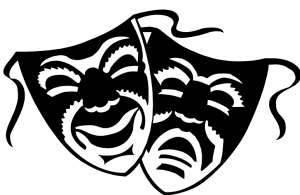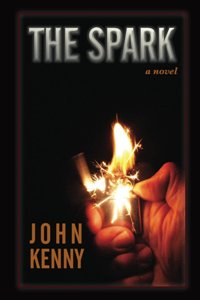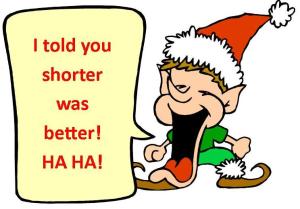 Over Christmas, my husband and I were indulging in one of our more recent traditions, which is watching the Trans Siberian Orchestra’s DVD The Ghosts of Christmas Eve. If you’re not familiar with TSO, they’re a bit of a brain-stretcher. Their music is essentially heavy metal, but they are backed by a full symphonic orchestra. They are not the kind of band I would normally gravitate toward, but their DVD production was an instant hit with both of us.
Over Christmas, my husband and I were indulging in one of our more recent traditions, which is watching the Trans Siberian Orchestra’s DVD The Ghosts of Christmas Eve. If you’re not familiar with TSO, they’re a bit of a brain-stretcher. Their music is essentially heavy metal, but they are backed by a full symphonic orchestra. They are not the kind of band I would normally gravitate toward, but their DVD production was an instant hit with both of us.
In any event, one of their guest singers was singing a song (not your traditional Christmas carol) and I was listening to the words and following the story of the song and began to think about how we—all of us humans—are storytellers. As a writer, of course, I can easily say I am a storyteller. My husband is an actor, and I’ve realized that he, too, is a storyteller, albeit in a different way. No one can deny the popularity of books, TV and film, and all of those things tell stories. Our music and songs do as well, as do pictures, jokes, anecdotes, even normal conversation. When you think about it, is there any medium we use to communicate that does not tell stories? Continue reading “Storytellers, All”


 Back in broadcast journalism school, I was taught that the shorter and simpler the sentence structure, the better. Subject-verb-object ruled the day. Semicolons were verboten. I was told to count the words in my sentences to make sure I had no more than twenty words in each. (I’ve since heard the new rule is ten words per sentence. Yikes.) It made sense to keep sentence structure simple because we were writing for the ear – and a pretty distracted ear at that, given that the audience is probably either getting the kids off to school or driving to work in rush-hour traffic, with the radio as background noise.
Back in broadcast journalism school, I was taught that the shorter and simpler the sentence structure, the better. Subject-verb-object ruled the day. Semicolons were verboten. I was told to count the words in my sentences to make sure I had no more than twenty words in each. (I’ve since heard the new rule is ten words per sentence. Yikes.) It made sense to keep sentence structure simple because we were writing for the ear – and a pretty distracted ear at that, given that the audience is probably either getting the kids off to school or driving to work in rush-hour traffic, with the radio as background noise.